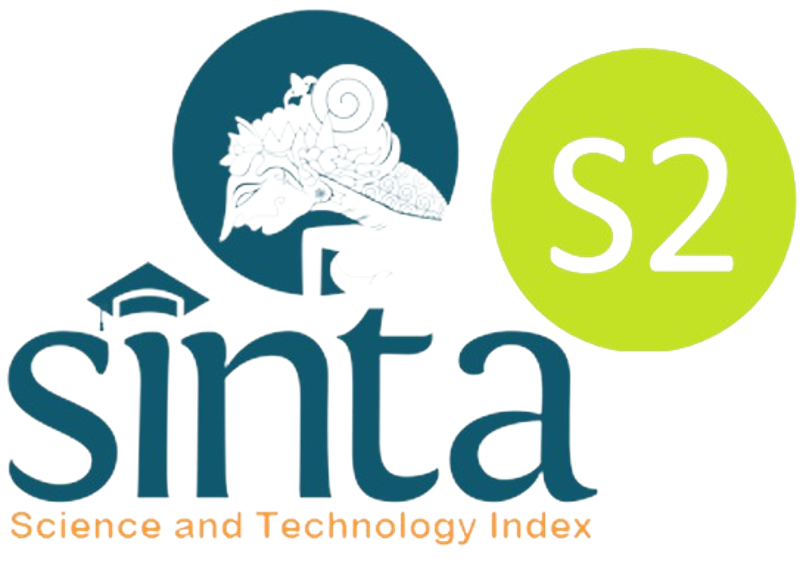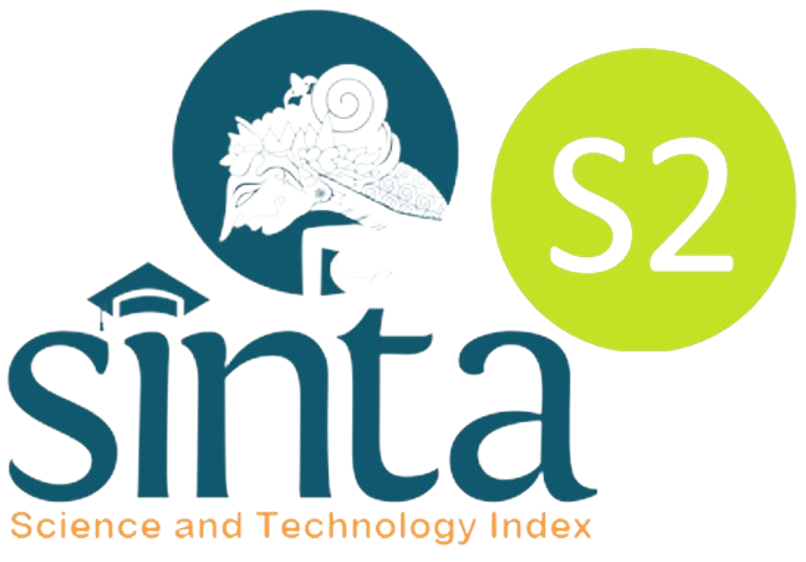The Effect of Socio-Scientific Inquiry Based Learning (SSIBL) Model Assisted by Nearpod on Students’ Problem-Solving Skills on Alternative Energy Material
DOI:
https://doi.org/10.26740/jpps.v14n2.p108-123Keywords:
Alternative energy material, Education, Nearpod , Problem-solving skills , Socio-Scientific Inquiry Based Learning (SSIBL)Abstract
Objective: This study aims to examine the effect of implementing the Socio-Scientific Inquiry Based Learning (SSIBL) model assisted by Nearpod on students’ problem-solving skills. Method: This research employed a quasi-experimental method with a nonequivalent control group design. The study involved experimental and control groups selected through a purposive sampling technique. Both groups were administered a pretest and a posttest. The instruments used in this study included a problem-solving skills test in the form of an essay questions and an observation sheet to assess the implementation of learning. Results: The findings of this research are as follows: (1) There was an increase in the average scores before and after the treatment. (2) The N-gain scores in both classes showed no significant difference (medium category), which was attributed to differences in instructional duration. (2) The implementation of SSIBL learning in both sessions were classified as high, with average percentages of 86.09% and 88.41%. Novelty: This research integrates SSIBL and Nearpod to improve students’ problem-solving skills in alternative energy materials.Downloads
References
Abdullah, M. I., Inayati, D., & Karyawati, N. N. (2022). Nearpod use as a learning platform to improve student learning motivation in an elementary school. Journal of Education and Learning (EduLearn), 16(1), 121–129. https://doi.org/10.11591/edulearn.v16i1.20421
Agustina, K., Sahidu, H., & Gunada, I. W. (2020). Pengaruh model pembelajaran inkuiri terbimbing berbantuan media phet terhadap kemampuan pemecahan masalah dan berpikir kritis fisika peserta didik SMA. Jurnal Pendidikan Fisika Dan Teknologi, 6(1), 17–24. http://dx.doi.org/10.29303/jpft.v6i1.1514
Alcaraz-Dominguez, S., & Barajas, M. (2021). Conceiving socioscientific issues in STEM lessons from science education research and practice. Education Sciences, 11(5), 1–13. https://doi.org/10.3390/educsci11050238
Alpianti, N. T. P., & Amelia, R. N. (2024). Infusing learners’ problem-solving skills through problem-based learning model assisted socio-scientific issues (SSI) worksheet on environmental pollution. JPPS (Jurnal Penelitian Pendidikan Sains), 13(2), 83–99. https://doi.org/10.26740/jpps.v13n2.p83-99
Aminulloh, R., Suhendra, & Ristiana, M. G. (2020). Improvement mathematical problem’s solving ability of junior high school students by using inquiry models with everyone is a teacher here strategy. Journal of Physics: Conference Series, 1657(1), 012028. https://doi.org/10.1088/1742-6596/1657/1/012028
Ariza, M. R., Christodoulou, A., van Harskamp, M., Knippels, M. C. P. J., Kyza, E. A., Levinson, R., & Agesilaou, A. (2021). Socio‐scientific inquiry‐based learning as a means toward environmental citizenship. Sustainability (Switzerland), 13(20), 1–22. https://doi.org/10.3390/su132011509
Babullah, R., Qomariyah, S., Neneng, N., Natadireja, U., & Nurafifah, S. (2024). Kolaborasi metode diskusi kelompok dengan problem solving learning untuk meningkatkan keterampilan pemecahan masalah siswa pada materi aqidah akhlak. Jurnal Budi Pekerti Agama Islam, 2(2), 65–84. https://doi.org/10.61132/jbpai.v2i2.132
Buulolo, F., Giawa, A., & Panjaitan, J. (2022). Pengaruh model pembelajaran contextual teaching and learning (CTL) terhadap kemampuan pemecahan masalah fisika siswa kelas XI SMK Swasta Gajah Mada Mandiri Medan. Jurnal Penelitian Fisikawan, 5(2), 11–19. http://jurnal.darmaagung.ac.id/index.php/jurnalpenelitianfisikawan/article/view/2057
Creswell, J. W. (2012). Educational research: planning, conducting, and evaluating quantitative and qualitative research. Pearson. https://books.google.co.id/books?id=4PywcQAACAAJ
Dewi, A., Juliyanto, E., & Rahayu, R. (2021). Pengaruh pembelajaran IPA dengan pendekatan computational thinking berbantuan scratch terhadap kemampuan pemecahan masalah. Indonesian Journal of Natural Science Education (IJNSE), 4(2), 492–497. https://doi.org/10.31002/nse.v4i2.2023
Firdausichuuriyah, C., & Nasrudin, H. (2017). Keterlaksanaan penerapan model pembelajaran inkuiri terbimbing untuk meningkatkan keterampilan berpikir kritis siswa materi larutan elektrolit dan nn elektrolit kelas X SMAN 4 Sidoarjo. UNESA Journal of Chemical Education, 6(2), 184–189. https://core.ac.uk/download/pdf/230685571.pdf
Garrido Espeja, A., & Couso, D. (2020). Introducing model-based instruction for SSI teaching in primary pre-service teacher education. Science Teacher Education for Responsible Citizenship: Towards a Pedagogy for Relevance through Socioscientific Issues, 153–171. https://doi.org/10.1007/978-3-030-40229-7_10
Gunawan, G., Harjono, A., Nisyah, M., Kusdiastuti, M., & Herayanti, L. (2020). Improving students’ problem-solving skills using inquiry learning model combined with advance organizer. International Journal of Instruction, 13(4), 427–442. https://doi.org/10.29333/iji.2020.13427a
Hajrin, M., Sadia, I. W., & Gunadi, I. G. A. (2019). Pengaruh model pembelajaran inkuiri terbimbing terhadap keterampilan berpikir kritis siswa pada pembelajaran fisika kelas X IPA SMA negeri. Jurnal Pendidikan Fisika Undiksha, 9(1), 63–74. https://doi.org/10.23887/jjpf.v9i1.20650
Hanifah, E., Setiono, S., & Nuranti, G. (2021). Pengaruh model socio-scientific issue terhadap keterampilan memecahkan masalah menggunakan aplikasi powtoon pada materi perubahan lingkungan. Biodik, 7(4), 18–28. https://doi.org/10.22437/bio.v7i4.13758
Hidaayatullaah, H. N., Dwikoranto, Suprapto, N., Mubarok, H., & Wulandari, D. (2020). Implementation of problem based learning to train physics students’ problem solving skills. Journal of Physics: Conference Series, 1491(1), 012053. https://doi.org/10.1088/1742-6596/1491/1/012053
Hidayatulloh, R., Suyono, S., & Azizah, U. (2020). Analisis keterampilan pemecahan masalah siswa SMA pada topik laju reaksi. JPPS (Jurnal Penelitian Pendidikan Sains), 10(1), 1899. https://doi.org/10.26740/jpps.v10n1.p1899-1909
Indarta, Y., Jalinus, N., Waskito, W., Samala, A. D., Riyanda, A. R., & Adi, N. H. (2022). Relevansi kurikulum merdeka belajar dengan model pembelajaran abad 21 dalam perkembangan era society 5.0. Edukatif : Jurnal Ilmu Pendidikan, 4(2), 3011–3024. https://doi.org/10.31004/edukatif.v4i2.2589
Jayadi, A., Putri, D. H., & Johan, H. (2020). Identifikasi pembekalan keterampilan abad 21 pada aspek keterampilan pemecahan masalah siswa SMA kota Bengkulu dalam mata pelajaran fisika. Jurnal Kumparan Fisika, 3(1), 25–32. https://ejournal.unib.ac.id/index.php/kumparan_fisika
Jayadiningrat, M. G., & Ati, E. K. (2018). Peningkatan keterampilan memecahkan masalah melalui model pembelajaran problem based learning (PBL) pada mata pelajaran kimia. Jurnal Pendidikan Kimia Indonesia, 2(1), 1–10. https://doi.org/10.23887/jpk.v2i1.14133
Jayanti, A., & Amin, B. D. (2018). Pengaruh pembelajaran inkuiri terbimbing terhadap kemampuan berpikir kritis peserta didik kelas XI MIA SMA Negeri 2 Barru. Jurnal Sains Dan Pendidikan Fisika, 14(1), 23–28. https://eprints.unm.ac.id/18833/
Johnson, J., Macalalag, A. Z., & Dunphy, J. (2020). Incorporating socioscientific issues into a STEM education course: Exploring teacher use of argumentation in SSI and plans for classroom implementation. Disciplinary and Interdisciplinary Science Education Research, 2(1). https://doi.org/10.1186/s43031-020-00026-3
Karmila, M., Palennari, M., & Rosyadi, I. (2023). Model problem based learning: upaya meningkatkan keterampilan pemecahan masalah peserta didik di SMAN 16 Makassar. Jurnal Pemikiran Dan Pengembangan Pembelajaran, 5(2), 1069–1077. https://jbasic.org/index.php/basicedu/article/download/8516/3478/29936
Katrien, H. N. S. (2022). Pengaruh penggunaan lembar kerja peserta didik berbasis socio-scientific inquiry based learning pada materi perubahan lingkungan untuk meningkatkan keterampilan eksplanasi ilmiah siswa. UIN Sunan Gunung Djati Bandung. https://digilib.uinsgd.ac.id/59799/
Kementerian Pendidikan dan Kebudayaan. (2022). Dimensi, elemen, dan subelemen profil pelajar pancasila. Kementerian Pendidikan dan Kebudayaan.
Knippels, M.-C. P. J., & Van Harskamp, M. (2018). An educational sequence for implementing socio-scientific inquiry-based learning (SSIBL). School Science Review, 371, 46–52. https://www.fi.uu.nl/publicaties/literatuur/2018_knippels_harskamp_ssi.pdf
Kurniasih, D. (2021). Implementasi model pembelajaran contextual teaching and learning (CTL) dalam pelajaran IPA di sekolah dasar. Social, Humanities, and Educational Studies (SHEs): Conference Series, 3(4), 285. https://doi.org/10.20961/shes.v3i4.53345
Lamadang, K. P., Mufarrihah, A., Iftitah, A., & Mawaddah, M. (2024). Metode pembelajaran untuk meningkatkan potensi peserta didik melalui pemahaman gaya belajar pada taman kanak-kanak kelompok b. KHIRANI : Jurnal Pendidikan Anak Usia Dini, 2(1), 97–115. https://doi.org/10.47861/khirani.v2i1.894%0AMetode
Lestari, I. (2015). Pengaruh waktu belajar dan minat belajar terhadap hasil belajar matematika. Formatif: Jurnal Ilmiah Pendidikan MIPA, 3(2), 115–125. https://doi.org/10.30998/formatif.v3i2.118
Leung, J. S. C., Wong, K. L., & Chan, K. K. H. (2020). Pre-service secondary science teachers’ beliefs about teaching socio-scientific issues. Science Teacher Education for Responsible Citizenship: Towards a Pedagogy for Relevance through Socioscientific Issues, 21–39. https://doi.org/10.1007/978-3-030-40229-7_3
Levinson, R. (2018). Introducing socio-scientific inquiry-based learning ( SSIBL ). Science and Society Research, 100(371), 31–35. https://www.academia.edu/download/78279124/SSR_December_2018_031-035_Levinson_0.pdf
Lolanessa, L., Kaniawati, I., & Nugraha, M. G. (2020). Pengaruh model problem based learning (PBL) menggunakan pendekatan STEM dalam meningkatkan keterampilan pemecahan masalah siswa SMP. WaPFi (Wahana Pendidikan Fisika), 5(1), 113–117. https://doi.org/10.17509/wapfi.v5i1.23452
Masitoh, I. D., Marjono, & Ariyanto, J. (2017). Pengaruh model pembelajaran inkuiri terbimbing terhadap kemampuan berpikir kritis siswa kelas X MIA pada materi pencemaran lingkungan di Surakarta. Bioedukasi, 10(1), 71–79. http://dx.doi.org/10.20961/bioedukasi-uns.v10i1.11276
McGregor, D., Frodsham, S., & Deller, C. (2023). Participatory inquiries that promote consideration of socio-scientific issues related to sustainability within three different contexts: agriculture, botany and palaeontology. Sustainability (Switzerland), 15(8), 1–14. https://doi.org/10.3390/su15086895
Mujahidin, G. R., Irawan, E., Kusumaningrum, A. C., & Ekapti, R. F. (2021). Analisis kemampuan penalaran dalam pemecahan masalah sosiosaintifik ditinjau dari gaya belajar siswa MTS kelas VIII. Jurnal Tadris IPA Indonesia, 1(3), 292–304. https://doi.org/10.21154/jtii.v1i3.204
Mustofa, M. H., & Rusdiana, D. (2016). Profil kemampuan pemecahan masalah siswa pada pembelajaran gerak lurus. Jurnal Penelitian & Pengembangan Pendidikan Fisika, 02(2), 15–22. https://doi.org/10.21009/1.02203
Nida, S., Mustikasari, V. R., & Eilks, I. (2021). Indonesian pre-service science teachers’ views on socio-scientific issues-based science learning. Eurasia Journal of Mathematics, Science and Technology Education, 17(1), em1932. https://doi.org/10.29333/ejmste/9573
Ningrum, A. A., & Fauziah, H. N. (2021). Analisis kemampuan berfikir reflektif dalam menyelesaikan permasalahan berbasis isu sosial ilmiah ditinjau dari perbedaan gender. Jurnal Tadris IPA Indonesia, 1(2), 87–98. https://doi.org/10.21154/jtii.v1i2.158
Nitko, A. J., & Brookhart, S. M. (2014). Educational assessment of students (Sixth Edition). Pearson.
Oktafiani, O., & Mujazi, M. (2022). Pengaruh media pembelajaran nearpod terhadap motivasi belajar pada mata pelajaran matematika. JPGI (Jurnal Penelitian Guru Indonesia), 7(1), 124–134. https://doi.org/10.29210/022033jpgi0005
Pratama, A. R., Iswandi, I., Saputra, A., Hasan, R. H., & Arifmiboy. (2023). Pengaruh model pembelajaran learning cycle 5E terhadap aktivitas belajar pendidikan agama islam dan budi pekerti di SMA Negeri 4 kota Bukittinggi. CENDEKIA: Jurnal Ilmu Sosial, Bahasa Dan Pendidikan, 3(1), 16–28. https://doi.org/10.55606/cendikia.v3i1.642
Pusat Kurikulum Dikbud Ristek. (2021). Kurikulum untuk pemulihan pembelajaran. Pusat Kurikulum dan Pembelajaran.
Qiao, Y. (2022). K-12 science learning: designing a lesson on nearpod to teach projectile motion. Proceedings of the 2022 8th International Conference on Humanities and Social Science Research (ICHSSR 2022), 664(Ichssr), 2122–2127. https://doi.org/10.2991/assehr.k.220504.384
Rauch, F., & Radmann, D. (2020). How socio-scientific inquiry based learning (SSIBL) promotes inquiry in climate issues – an example for enacting socio-scientific issues in science education. Action Research and Innovation in Science Education, 3(2), 43–45. https://doi.org/10.51724/arise.35
Retno, N. H. D., Sunarno, W., & Marzuki, A. (2019). Influence of physics problem-solving ability through the project based learning towards vocational high school students’ learning outcomes. Journal of Physics: Conference Series, 1307(1), 1–7. https://doi.org/10.1088/1742-6596/1307/1/012009
Sa’dah, S., Noerfatimah, F., & Yusup, I. R. (2022). (LKPD) berbasis socio-scientific inquiry based learning (SSIBL) untuk meningkatkan keterampilan pemecahan masalah siswa. BioEduin: Jurnal Program Studi Pendidikan Biologi, 12(2), 120–136. https://doi.org/10.15575/bioeduin.v12i2.23022
Sahito, Z., Khawaja, M., Panhwar, U. M., Siddiqui, A., & Saeed, H. (2016). Teachers’ time management and the performance of students: a comparison of government and private schools of Hyderabad, Sindh, Pakistan. World Journal of Education, 6(6), 42–50. https://doi.org/10.5430/wje.v6n6p42
Santoso, A. M., & Arif, S. (2021). Efektivitas model inquiry dengan pendekatan STEM education terhadap kemampuan berfikir kritis peserta didik. Jurnal Tadris IPA Indonesia, 1(2), 73–86. https://doi.org/10.21154/jtii.v1i2.123
Santoso, N. R. B., & Widodo, W. (2023). Penerapan model inkuiri terbimbing berbantuan phet simulations untuk meningkatkan keterampilan pemecahan masalah pada materi tekanan zat cair. Pensa E-Jurnal: Pendidikan Sains, 11(2), 188–193. https://ejournal.unesa.ac.id/index.php/pensa/article/view/53678
Sari, S. M. (2020). Pengembangan perangkat pembelajaran problem based learning (PBL) dalam pembelajaran matematika di SMA. Jurnal Serambi Ilmu, 21(2), 211–228. https://doi.org/10.32672/si.v21i2.2235
Setyawan, D., & Riadin, A. (2020). Implementasi model pembelajaran direct instruction (DI) berbantuan media audiovisual untuk meningkatkan hasil belajar IPA pada peserta didik kelas V SDN-1 Langkai Palangka Raya. Pedagogik: Jurnal Pendidikan, 15(1), 1–9. https://doi.org/10.33084/pedagogik.v15i1.1277
Shah, R. K. (2020). Learner centred teaching and related instructional practices. International Journal of Creative Research Thoughts, 8(12), 2320–2882. http://www.ijcrt.org/papers/IJCRT2012306
Simanjuntak, M. P., Hutahaean, J., Marpaung, N., & Ramadhani, D. (2021). Effectiveness of problem-based learning combined with computer simulation on students’ problem-solving and creative thinking skills. International Journal of Instruction, 14(3), 519–534. https://doi.org/10.29333/iji.2021.14330a
Simatupang, H., & Ionita, F. (2020). Pengaruh model problem based learning terhadap kemampuan pemecahan masalah materi pencemaran lingkungan siswa SMA Negeri 13 Medan. Jurnal Biolokus, 3(1), 245. https://doi.org/10.30821/biolokus.v3i1.680
Sugiyono. (2019). Metode penelitian kuantitatif, kualitatif, dan R&D. Yogyakarta:
Penerbit Alfabeta.
Downloads
Published
How to Cite
Issue
Section
License
Copyright (c) 2025 JPPS

This work is licensed under a Creative Commons Attribution-ShareAlike 4.0 International License.
 Abstract views: 473
,
Abstract views: 473
, PDF Downloads: 809
PDF Downloads: 809












